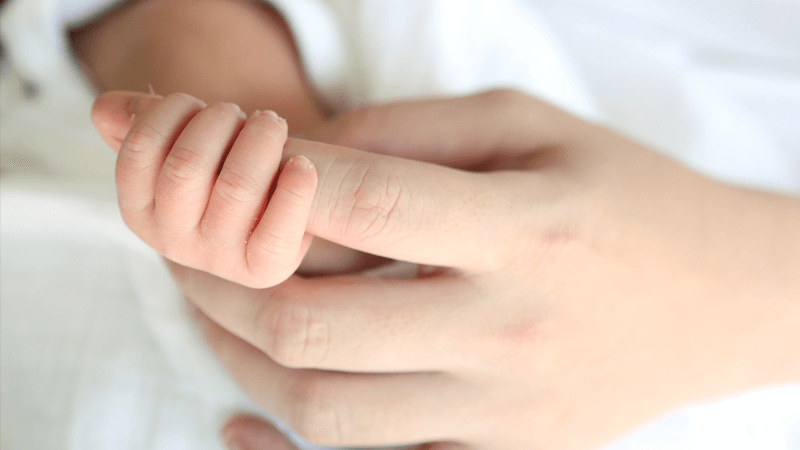A mother has shared how she refused to abort her daughter despite facing pressure from doctors to do so throughout her pregnancy.
Meghan Elise Bell was told by medics at a routine ultrasound screening that her unborn child may have spina bifida, and that she could be aborted any time up to birth if she desired.
Spina bifida is caused when the spinal cord does not develop properly, affecting between 700 and 900 pregnancies each year. It can result in walking difficulties or paralysis, but is often much less serious.
Erasure
Writing for The i, Bell said the first time she had seen her daughter was when the midwife told her a bump on her baby’s back could be spina bifida, and that she had a ‘decision’ to make.
The expectant mother was repeatedly told she could abort her daughter by medical staff, who claimed that a baby showing signs of any foetal anomaly can be aborted up to birth.
However, the law states such an abortion is legal only if two doctors agree “that there is a substantial risk that if the child were born it would suffer from such physical or mental abnormalities as to be seriously handicapped”.Would you like to erase this baby and try again?
She said: “The brutal truth of that argument broken down is: ‘Would you like to erase this baby and try again?’ What kind of a message is that in this society, where we seek to create equal opportunities, regardless of ability?”
Pressure
Bell also shared that her own mother has been disabled with MS since the age of 30, and that her family adapted to “new levels of disability while still enjoying life, travelling and making the most of all she could do”.
She continued: “To me, disability was not a frightening unknown. And our baby was already a member of our growing family. Yet, professionals presented abortion to us like it was the usual route. Sadly, it is. 81 per cent of pregnancies with this type of foetal anomaly are terminated.
“There was pressure on us from the beginning, even before the diagnosis was confirmed, to have an abortion. It’s easy to only see the bleak future they paint. It’s only because I’d read so many stories told by parents, that I was able to see the joy and possibility of living life alongside a child with this condition.”
Would you like to erase this baby and try again?
Evelyn
Bell and her husband chose the name Evelyn, which means ‘desired child’, “because no matter how she came out or what she could do, she was wanted”.
Evelyn underwent in utero surgery to repair her spine at 25 weeks. A week later, the tiny baby was born via emergency caesarean weighing just 1lb 10oz, before going into neonatal intensive and special care.
The parents watched their little girl developing over the next 14 weeks – seeing the growth and changes that would ordinarily have been happening in the womb. Bell said: “The idea that termination would have been possible at any of those stages is heart-wrenching.”Would you like to erase this baby and try again?
‘Absence of regret’
Evelyn is now two years old and delights her parents “daily”.
Her mother said: “I want people reading this story to see hope in a situation that is often painted as hopeless. I want to tell you that having a child with a disability is not the alien lifestyle you might be imagining in your darkest moments.
“It’s so normal and full of times that make you cry and smile, just like all journeys of parenthood. Ninety eight per cent of parents who refuse abortion for their child with disabilities report a complete absence of regret. I’m one of them. I think babies with Evelyn’s condition deserve to be treated equally, before and after birth.”
Stories
Recent years have seen an increase in the number of in-womb surgeries to help babies before they are born.
In 2019, Bethan and Kieron Simpson were initially offered an abortion, but baby Elouise was born healthy and well after doctors performed the pioneering surgery.
And in 2018 Augustine Somers, who was diagnosed with spina bifida at 22 weeks, underwent surgery just days before the 26-week procedure deadline. He was the first baby in Scotland to undergo the operation and will turn three this weekend.

